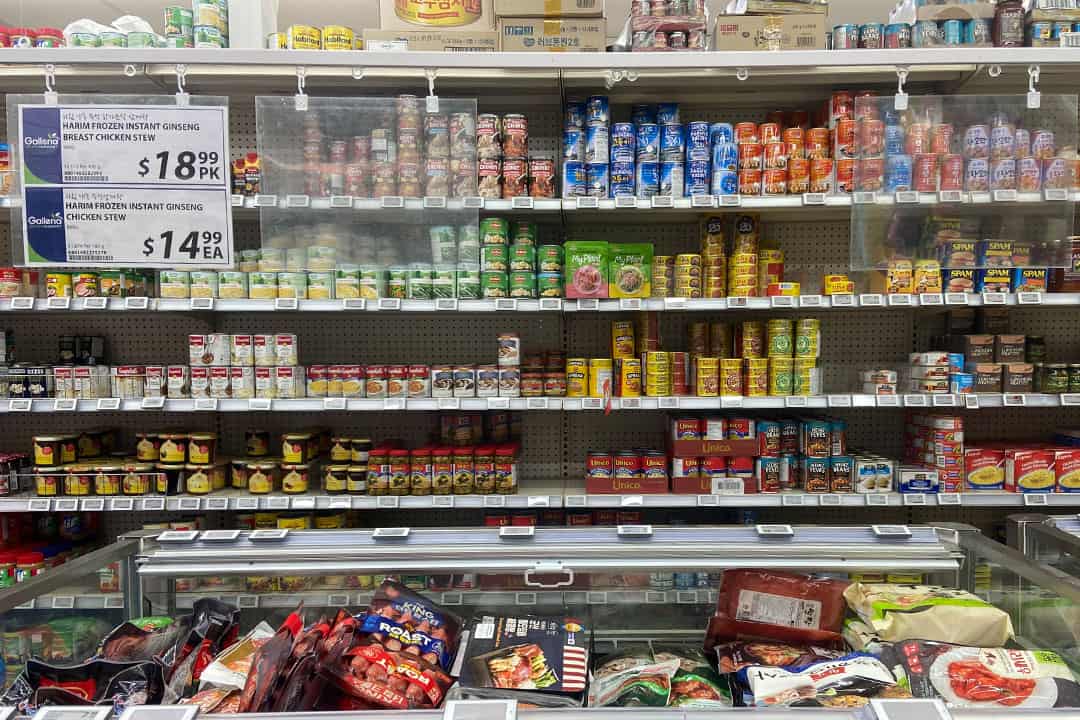As Canadians continue to face the worrisome consequences of recent grocery inflation, numerous premiers have called on the Bank of Canada to “pause” the increases in its key interest rate.
The latest Consumer Price Index, which is a measure of the overall change in prices of a fixed basket of goods and services purchased by households over time, found that the price of food had increased by 8.3 per cent this June from the previous year. Rising grocery prices are another factor in the rising cost of living in Toronto, along with the soaring costs of rentals that have dominated headlines since the end of the COVID-19 lockdowns. As a result, U of T students are feeling the toll of rising prices on their living standards.
But the causes behind soaring grocery prices are not clear or simple. A survey conducted this April by Dalhousie University’s Agri-Food Lab reports that 30.3 per cent of Canadians believe grocery chain CEOs are profiting from food inflation. CEOs of Canada’s biggest grocery chains — Empire, Loblaws, and Metro — have vehemently denied these sentiments. However, the corporations’ financial reports and the varying prices of basic ‘anchor’ products across grocery stores neighbouring all of the U of T campuses call their denials into question.
The basis for the ongoing profiteering accusations
An oligopoly — a very small number of very large companies — controls the Canadian grocery industry. Oligopolies mean that grocery companies do not have very much competition for customers, and they can do things like hike grocery prices without losing too much business. Oligopolic control of Canada’s grocery industry is especially concerning given that groceries are a basic necessity.
This past September, Prime Minister Trudeau threatened major grocery retailers with “further action”, possibly even with “tax measures,” to combat alleged profiteering from inflating food prices. If it turns out that grocery retailers are simply increasing prices to keep up with increasing costs of supplies and labour, for example, or that increasing profits are the result of increasing sales, that is justified. But if companies are simply increasing prices to rake in a bigger profit, the federal government says it will step in and take regulatory action against the corporations.
Profit increases across the grocery industry
Metro Canada has been reporting high profits and sales since January 2022, despite striking workers shutting down Metro stores in the GTA for the entire month of August this past year.
The chain’s net earnings during its first 2023 fiscal quarter increased by 11.3 per cent compared to the first fiscal quarter of 2022. Metro Inc. operates the conglomerate, which also owns 975 other food stores and 645 drugstores. The company also reported an increase in food and pharmacy same-store sales for the third quarter of their 2023 fiscal year, encompassing April, May, and June. The company reported that online food sales were up 99 per cent compared to the same period in the previous fiscal year.
Meanwhile, No Frills markets itself on discount grocery options and is a popular competitor to Metro. No Frills has locations within reach of all three U of T campuses. No Frills is owned by Loblaw Companies Ltd., a company that also owns Shoppers Drug Mart, T&T Supermarket, Your Independent Grocer, and other grocery chains — and that experienced an increase in sales and profits in the second quarter of 2023.
Loblaws maintains that these numbers do not account for inflation’s impact on the retailer. Loblaws president Galen Weston Jr. said that the actual margin between the sale price of individual grocery items and the cost of supplying those items has actually decreased. Weston asserted that manufacturers who supply grocery items have had to pay more for the costs of inputs like raw materials and labour.
FreshCo is a discount grocery store that is owned by Sobeys. Sobeys’ parent company, Empire, reported higher same-store sales and profits in its first quarter of 2023. Empire also reported that its food retail sales increased by one per cent for the full 2023 fiscal year. It attributed this to its expansion of the FreshCo banner.
Overall, Sobeys controls 20 per cent of the Canadian grocery retail industry, while Loblaws and Metro control 28 and 11 per cent, respectively. These large shares of the market limit consumers’ ability to shop for necessary food supplies at other retailers, potentially making corporate profiteering more likely. Both retailers are among the chains who met with the federal government to discuss affordability in September.
The future outlook
The drastic rise in demand for food centers at U of T following the pandemic is just one indicator of this food crisis’s effects on students. As the public need for more food support becomes more apparent and public trust continues to waver, food banks are preparing for a busier-than-expected season ahead.
The CEOs of Empire, Loblaws, and Metro have met with Prime Minister Trudeau and the agricultural committee to address solutions to the crisis. However, the lack of transparency in the information these corporations share threatens to jade public opinion even further. The federal government has proposed amendments to the Competition Act that will require them to disclose more financial information to the government. CEOs will return to Ottawa to explain their efforts to “stabilize food prices” for Canadians to the federal agriculture committee. The date has not been confirmed as of yet. The committee has announced that all grocers must submit a report detailing plans and improvements to these stabilization efforts by November 2.



No comments to display.